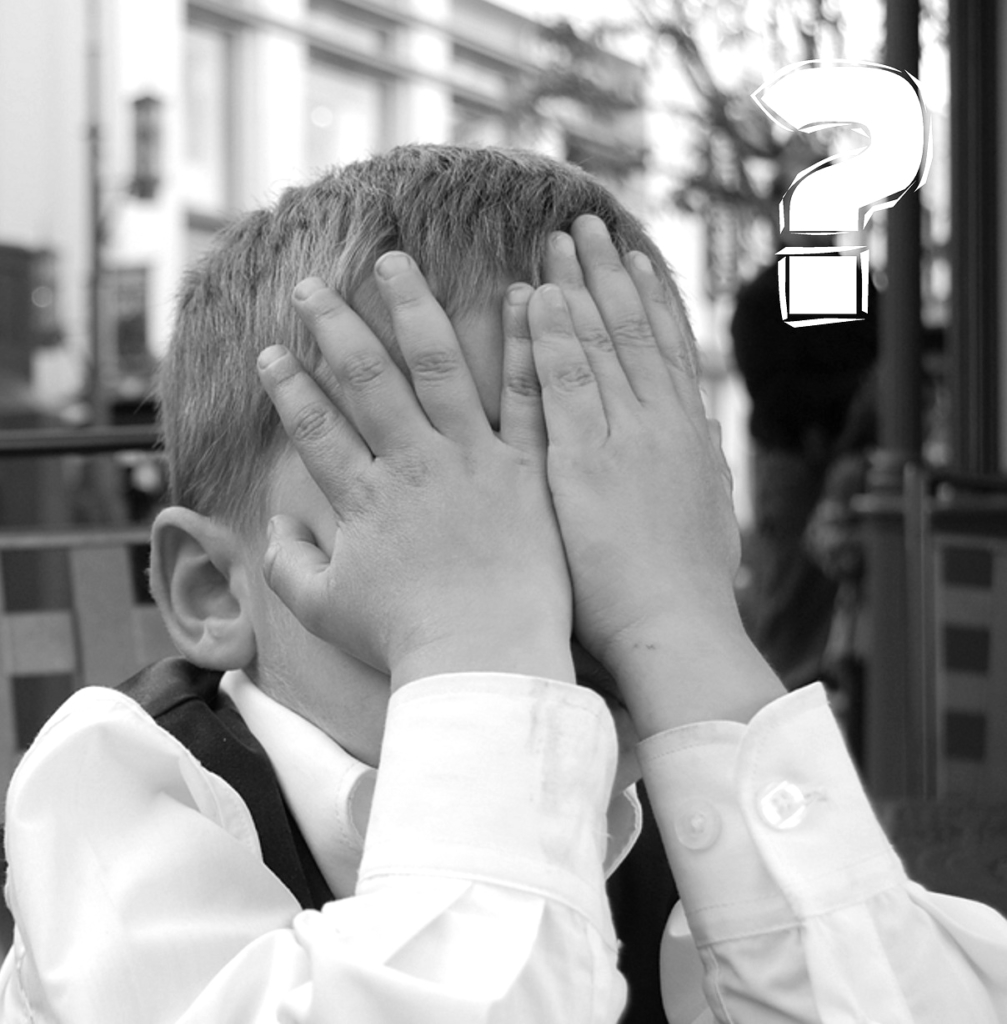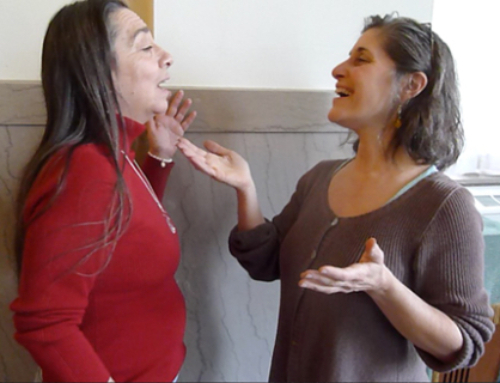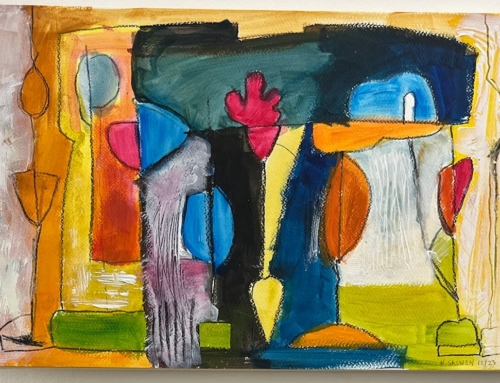 In workshops and lessons, we do our best to create a judgement-free zone, where we can let go and really explore our voices, partly because it’s fun (and beginning singers need to find out that singing can be fun), and also because when you’re locked in by constant judgement it’s practically impossible to think straight or hear clearly, much less to learn how to sing. I say, “Let’s replace cringe and judgement with curiosity. If you find yourself cringing because you’ve made a ‘mistake’ or sung a note that doesn’t sound right to you, try making a quick shift into a different mindset.”
In workshops and lessons, we do our best to create a judgement-free zone, where we can let go and really explore our voices, partly because it’s fun (and beginning singers need to find out that singing can be fun), and also because when you’re locked in by constant judgement it’s practically impossible to think straight or hear clearly, much less to learn how to sing. I say, “Let’s replace cringe and judgement with curiosity. If you find yourself cringing because you’ve made a ‘mistake’ or sung a note that doesn’t sound right to you, try making a quick shift into a different mindset.”
Instead of saying, “Oh my god, I suck!,” try saying this:
“Huh. That’s not what I was expecting to come out of my mouth!” And then ask, “How so? How is it different that what I expected?” Compare! Contrast! Even experienced singers and musicians do this all the time — they’ve just learned to do it really fast so that they can adjust their sound before anyone’s really heard it. This is what practicing is. “Was I a little low? A little high? Did I come in a little soon? A little late?”
Curiosity!
Judgement, cringing, and embarrassment cause us to freeze up like a deer in the headlights, or like a child who’s about to get in trouble. That’s a state of defensiveness — and perfectly understandable because when we sing we’re very vulnerable, and many of us have had shaming experiences with singing that we dread repeating. In fact, we may have stopped singing for years just to avoid that feeling!
Curiosity, on the other hand, opens us up and places us in a state of receptivity. This is where real learning and transformation happens.
So, Here’s a Good First Thing to be Curious About.
Why the cringe in the first place? For you? Why do you cringe? Where does your fear come from? What are the voices in your head saying? What is the physical manifestation of your singing cringe? Does your throat tense up? Do you blush? Do you stop short and apologize? Whatever it is that constitutes your personal embarrassment / judgement / cringe reaction will become less powerful if you turn towards it and give it a good look. You don’t have to let it be the boss of you!
That cringe you’ve been avoiding by not singing is just a bunch of feelings and fleeting physical reactions, and if you want to learn how to sing, it will help immensely to take a compassionate look at what’s going on and ask a few questions. Here are a few that come to my mind, but I suggest you be curious and find some questions of your own as well…
• Was there a negative singing event in my life?
• Was there a story or assumption in my family or community about me being a bad singer?
• Did anyone try to help me be a better singer or was I only criticized? If so, why might that be? (just a tip: explore alternatives to “because I suck so bad”.)
• When I imagine being embarrassed about my singing, what are the voices saying in my head?
• When I imagine being embarrassed while singing, what is happening in my body?
• Despite all this, why do I still want to sing — why might it be worth it?
• In what settings would I love to sing?
• What’s the worst thing that could really happen if I sing “badly”?
• How is singing different for me when I replace cringe with curiosity?
Say, “Yeah, Yeah, Yeah… Whatever”
Once you’ve used your curiosity as a tool and taken a closer look at your cringe, you will find it easier to set it aside when you’re in a lesson or a workshop, or when you’re singing out in the world, or practicing by yourself. I doubt your inner critic will disappear completely, but when it gets loud, it will be easier to say, “Yeah, yeah, yeah — you again — whatever…,” and turn your focus back to all the new, more interesting things there are to be curious about:
“How can I really connect with this song and put more feeling into it?”
“How does that first line go — does it go up there or stay on the same note?”
“Do I enjoy this song more when I sing it higher or lower?”
Now, those are very fun and interesting questions! You are so much more open to learning new things when you replace cringing with curiosity!
And here’s a beautiful thing…
Like so much else about learning to sing, this idea applies to every other aspect of life. If instead of reverting to habitual defenses, we bring our genuine curiosity, our world can only become a better place. Isn’t that great?!






Leave A Comment